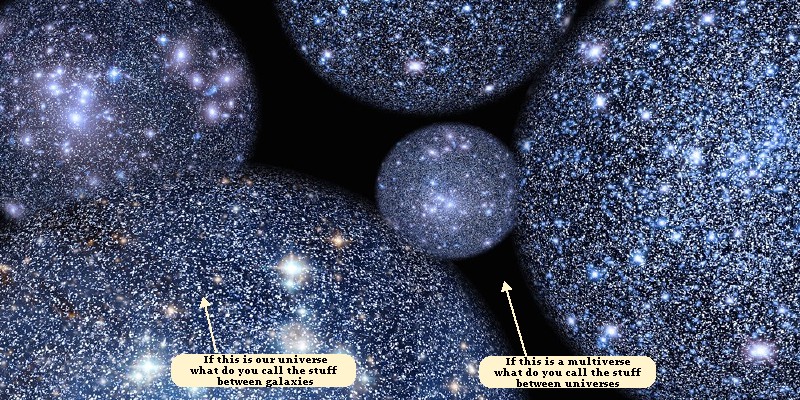
Recently there have been numerous articles on the "conditions" having to be just right for our universe / us to exist. Many written by famous physicists some of which are found here on our website. These have concluded that universe's delicate balance for existence must have had a designer - God. Just a "coincidence" wont fly.

What is the multiverse?
Is our universe one of a kind — or, as some scientists argue, one of an infinity of universes?
It sounds wild. But the idea that we live in a multiverse — a cosmos where an infinite number of universes exist beside our own — is no longer confined to science fiction. It’s a respectable theory among scientists, so much so that some are on the hunt for proof of a nearby universe.
Advances in physics over the past 30 years have led some physicists and cosmologists to the mind-boggling conclusion that the universe we inhabit is just one of many in existence — perhaps an infinite number.
If these scientists are right, then all the stars and galaxies we see in the night sky are but a tiny fraction of an incomprehensibly vast assemblage that scientists call the multiverse. As MIT physicist Max Tegmark wrote in his 2014 book "Our Mathematical Universe," “Our entire universe may be just one element — one atom, as it were — in an infinite ensemble; a cosmic archipelago.”
A multiverse — sometimes called an omniverse — would mean more than just lots of extra real estate. If it exists, Tegmark continued, it includes “parallel universes where you never get a parking ticket, where you won a million-dollar lottery, where you have a different name, where Germany won World War II, where dinosaurs still roam Earth, and where Earth never formed in the first place.”
THREE ARGUMENTS FOR THE MULTIVERSE
While the idea of a multiverse sounds like something straight out of science fiction, physicists have advanced three distinct arguments for its existence.
The first involves the Big Bang, the cataclysmic event that brought the universe into existence some 13.8 billion years ago. The Big Bang is thought to have been triggered by a random fluctuation in what physicists call the quantum foam, a maelstrom of virtual particles that pop into and out of existence. But while some physicists believe this blip and the ensuing “inflation” of the universe constitute a unique event, others say there could have been many such events — leading to multiple universes.
The second argument for the existence of a multiverse arises from string theory, which holds that matter is ultimately composed not of particles but of unimaginably small, vibrating strings or loops of energy. Physicists once hoped that string theory might afford a “theory of everything” — that is, a system of equations that explains why our universe has the exact properties that it does. For example, why is the mass of a proton 1836.15 times greater than that of the electron? No one has a good explanation.
But instead of a single solution to this and other fundamental scientific questions, string theory’s equations seem to have a staggering number of possible solutions (perhaps as many as 10^500 — that’s a one followed by 500 zeros). Some string theorists argue that each of these solutions describes a different universe, each with its own physical properties.
The third argument for the multiverse comes from quantum theory. Although it’s been around for more than a century now and has proven to be extremely successful at describing the nature of matter on the smallest scale, quantum theory leads to a number of existential possibilities that defy common sense. In what’s known as the “many worlds” interpretation of quantum theory, which got its start in the 1950's and has recently seen renewed interest, the universe essentially splits in two each time there’s a so-called quantum event.
In the upside-down world of quantum theory, for instance, a radioactive particle decays and doesn’t decay during any given period of time — and each result plays out in a separate universe. With such quantum events happening more or less continuously, the argument goes, the number of universes keeps increasing.
BUT IS IT SCIENCE?
Tegmark is one of several prominent scientists who support the idea of a multiverse while others are dubious. Some doubters say multiverse theories aren’t really science at all. Science is a system based on observation and experimentation, and it’s not clear that we’ll ever be able to observe another universe or determine whether other universes really exist.
“I do not believe the existence of those other universes has been proved — or ever could be,” George Ellis, a physicist at the University of Cape Town, wrote in Scientific American.
Sabine Hossenfelder, a physicist at the Frankfurt Institute for Advanced Studies in Germany, is even more blunt, calling efforts to describe the multiverse a waste of time. “Science can’t say anything about whether or not [these universes] exist,” adding that the scientific ideas put forth to support a multiverse “stem from the same flawed argument, which is an over-reliance on mathematics.”